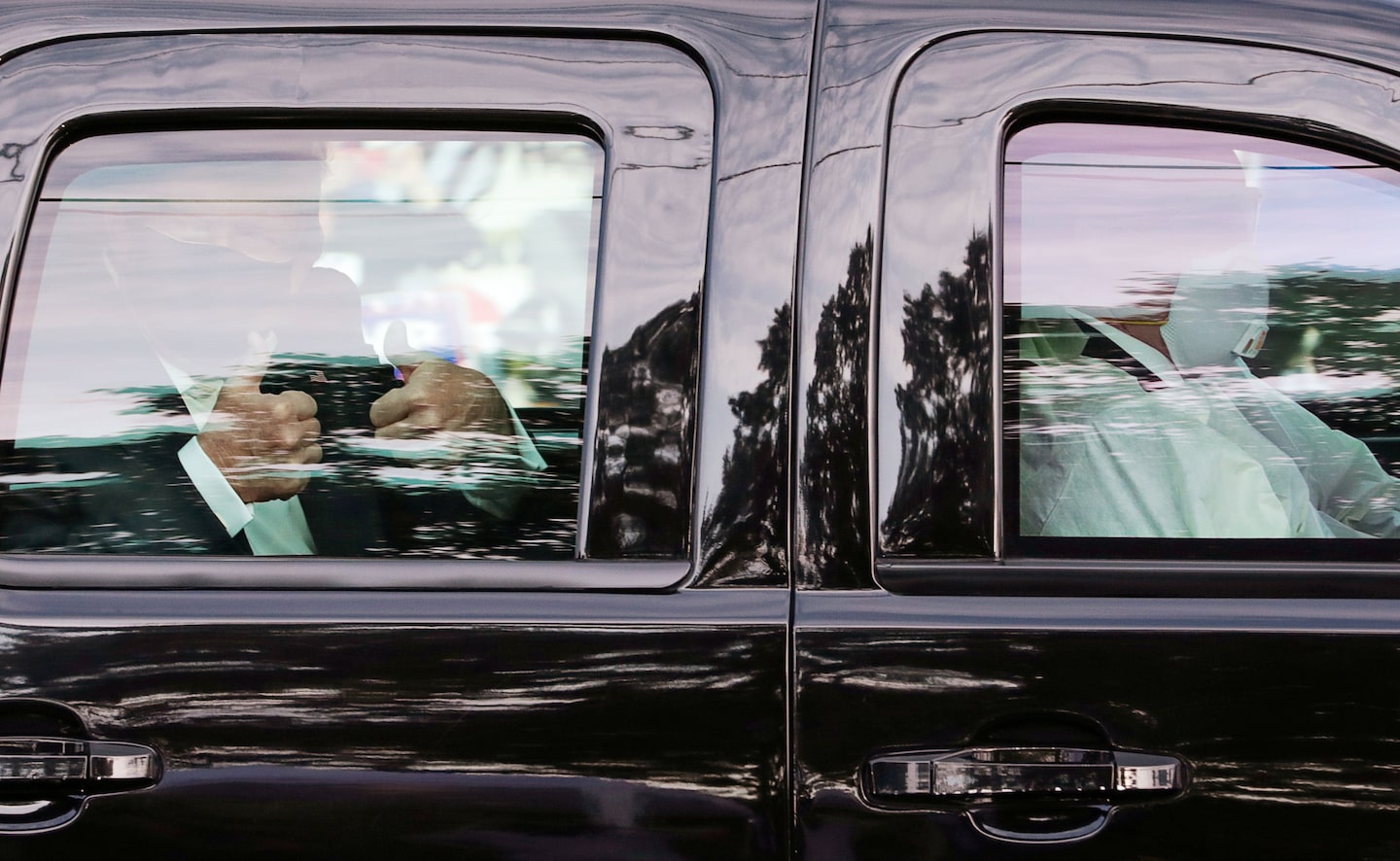Pence may believe what he said about Breonna Taylor. But it’s not true.

The truth is that this administration’s empathy for victims of police violence and its support for police officers are negligible, as light as the fly that landed on Pence’s head.
Here is a rule of grammar, not to mention decency, for politicians: Never follow an expression of sympathy for an innocent woman shot six times with the word “but.” “But” means your sympathy is qualified in a way that will not comfort the mourning. “But” means your sympathy actually goes to the men who gunned her down.
Asked whether justice had been done in the case of Taylor, the unarmed Black woman killed in her own home by Louisville police, Pence, predictably enough, broke this rule.
“Well, our heart breaks for the loss of any innocent American life, and the family of Breonna Taylor has our sympathies,” he answered. “But I trust our justice system, a grand jury that reviews the evidence.”
Pence then devoted most of his answer to a shoutout to the police. He began by attacking former vice president Joe Biden and his debate opponent, Sen. Kamala D. Harris, for their “presumption” that the United States is “systemically racist” and claimed it was a “great insult” for Biden to be concerned about bias among cops.
And if that weren’t insult enough, the vice president then had the nerve to say, “I want everyone to know who puts on the uniform of law enforcement every day, President Trump and I stand with you.”
Best for Pence to keep Trump’s name out of his mouth if the subject is support for people in uniform. If Trump supported law enforcement, he would not have taken that infamous joyride around Walter Reed National Military Medical Center. As former special agent Joseph Petro wrote in The Post, “this was a gratuitous and dangerous political exercise that needlessly exposed his Secret Service agents — as well as their families — to the potentially deadly novel coronavirus.”
If Trump really stood with law enforcement, he would not have checked out of the hospital while still infectious and squeezed into a helicopter with the pilots and officers assigned to protect him. If Trump had any respect for those in uniform, he would not have entered the Oval Office, with a U.S. Marine in close proximity.
The phrase “wanton endangerment” comes to mind. One commits that crime by doing something that creates a “substantial danger of death or serious physical injury to another person.” Under Kentucky law, you don’t have to intend to hurt anyone; it’s enough if you are reckless about danger your conduct creates. Most states have equivalent laws.
A bold prosecutor with an interest in equal justice under the law — in other words, somebody other than Kentucky Attorney General Daniel Cameron (R), who oversaw the grand jury in Taylor’s case — could mount a case against Trump for wanton endangerment. More than 211,000 Americans have died from a lethal disease that the president has the potential to spread.
As Trump cavorts around the White House, huffing and puffing the coronavirus, his actions demonstrate the crime’s requisite mental state of “extreme indifference to the value of human life.” The people the president puts most at risk are his security detail, his household staff and others forced to be close to him.
Many states have specific laws criminalizing the actions of people who knowingly spread a disease. To be sure, the HIV epidemic taught us the folly of prosecuting people for this conduct. The point here is that Trump’s callousness toward the people assigned to protect him might, literally, be a crime.
It’s understandable why, at the debate, Pence deflected from focusing on victims of police brutality. Trump’s racist campaign appeals to “law and order” require lip service support for cops. Black lives don’t matter to this president.
But as Trump’s post-infection recklessness has made clear, blue lives don’t matter to him either. The life that matters most to Trump is Trump’s.
Read more:






